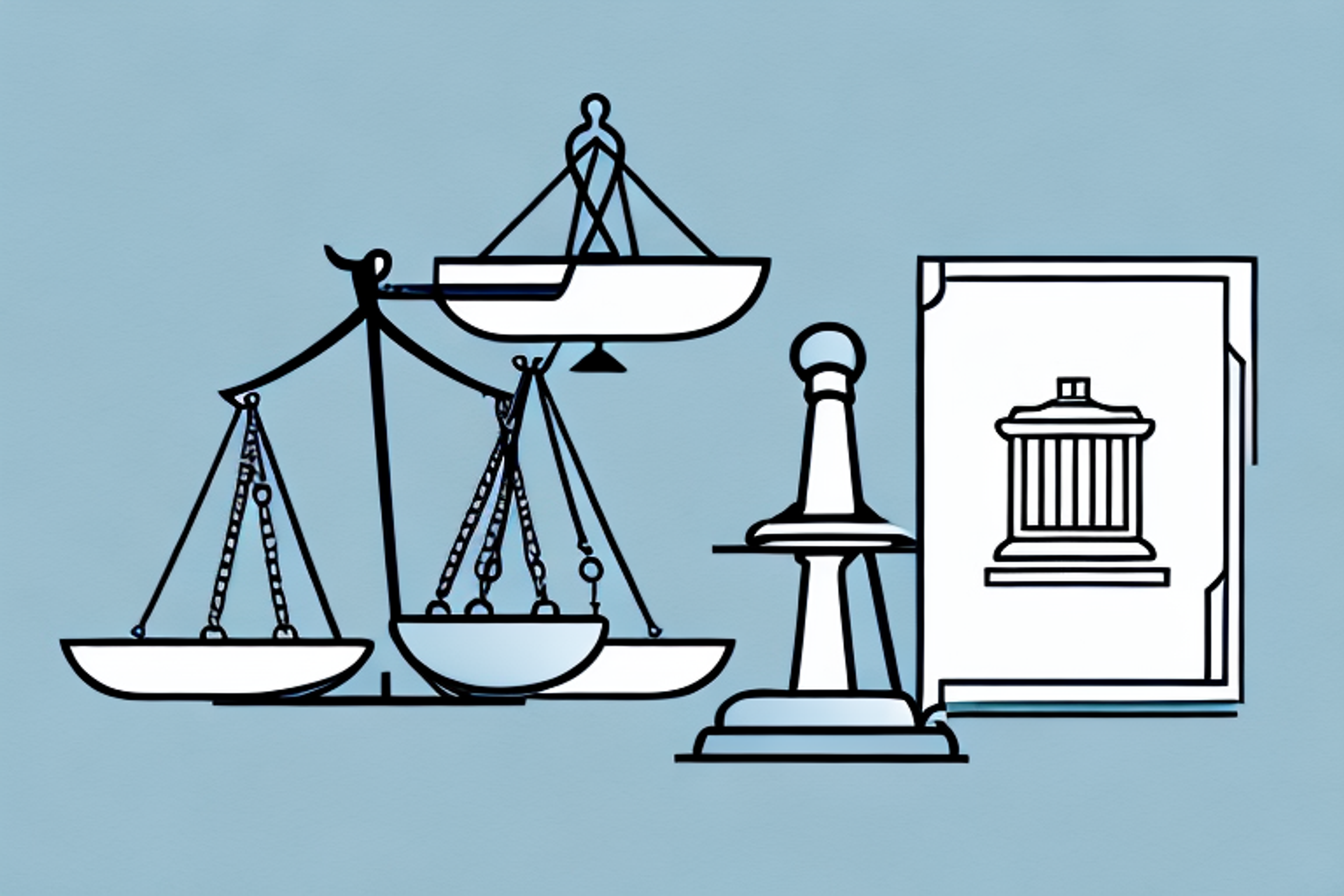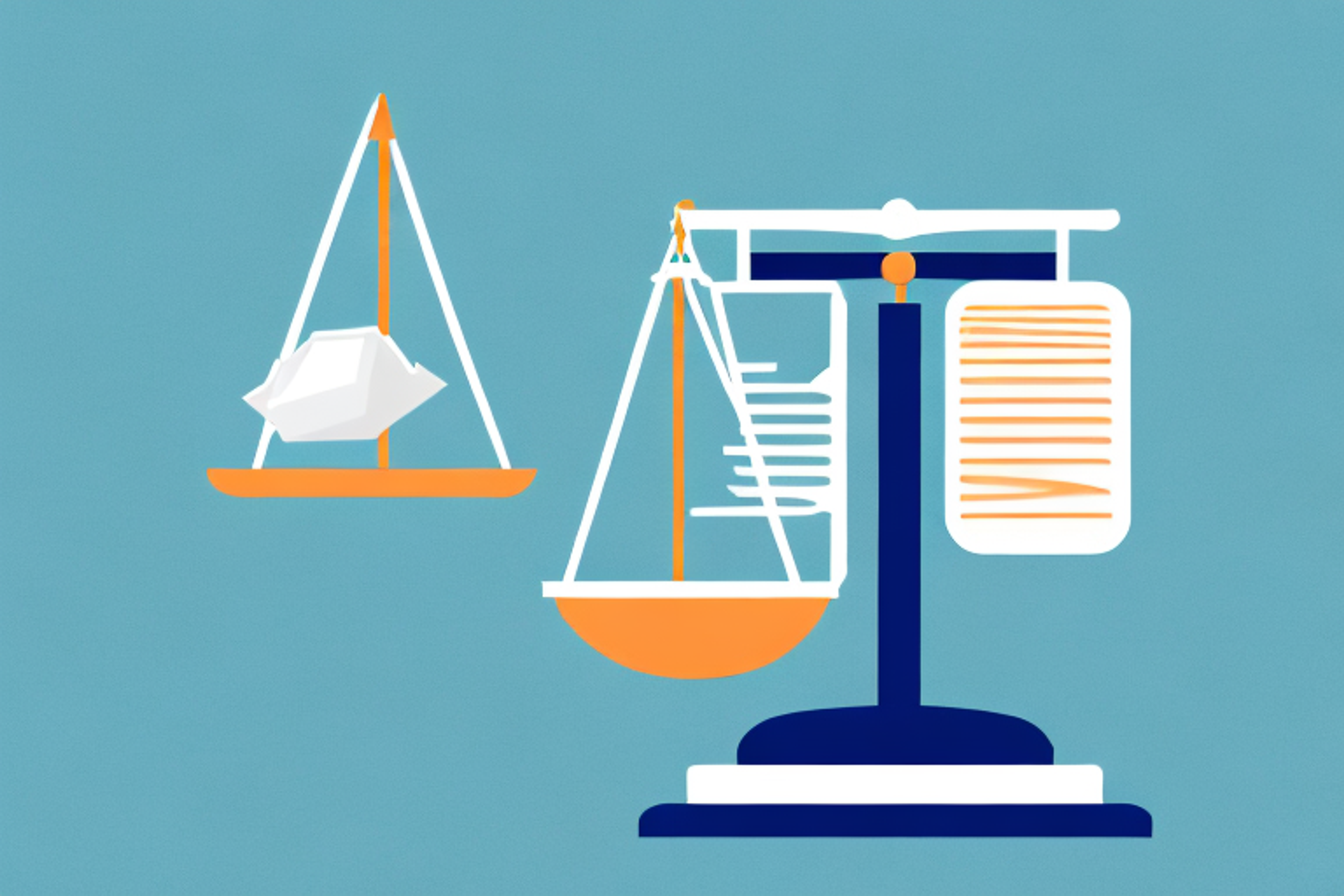

Legal Research and Writing: Essential Skills for Student Success

Legal research and writing are the cornerstone of legal education and practice. Mastering these skills is pivotal for law students and a prerequisite for a successful legal career. This blog post delves into the significance of legal research and writing, outlining how students can harness these tools to excel in their studies and lay a strong foundation for their future as legal professionals.
The Fundamentals of Legal Research
Legal research is the systematic process of identifying and retrieving information necessary to support legal decision-making. In law studies and practice, its primary purpose is to find an ‘authority’ that will aid in solving a legal problem. Whether a law student or a practicing attorney, legal research helps understand the law, find legal precedents, and provide the legal framework for handling cases. For those who find this process daunting, seeking assistance from professional research paper writers can be a valuable resource. These experts can guide and support navigating complex legal databases and sources, ensuring that the research is thorough, relevant, and effectively supports the legal argument or case.
Key Resources and Tools
Legal research encompasses various resources and tools:
- Law Libraries: A traditional yet invaluable resource offering access to a vast collection of legal texts, case law, statutes, and periodicals.
- Online Legal Databases: Tools like LexisNexis, Westlaw, and Bloomberg Law provide comprehensive digital access to case law, statutes, and legal commentaries.
- Legal Journals are crucial for staying updated with the latest legal research, theories, and case studies.
Steps for Conducting Effective Legal Research
- Identifying and Articulating the Legal Problem: This involves understanding the issue in detail, which is critical for effective research.
- Locating Relevant Legal Sources and Materials: This step requires using various resources to find statutes, case law, and legal opinions pertinent to the issue.
- Analyzing and Interpreting Legal Texts: The final step involves interpreting the findings and how they apply to the legal problem, requiring a deep understanding of legal principles and precedents.
Mastering Legal Writing
Legal writing is crucial for effectively communicating legal analysis and arguments. It is the medium through which a lawyer or law student expresses their understanding of legal issues and their ability to argue cases or provide legal opinions. Clarity, precision, and persuasiveness in legal writing directly impact legal arguments’ effectiveness in courtrooms, memos, and other legal documents.
Different Forms of Legal Writing
Legal writing can take various forms, each serving a different purpose:
- Case Briefs: Summarize court opinions. Case briefs are a fundamental tool in law studies.
- Legal Memos: Used to advise clients or other attorneys on legal matters.
- Legal Correspondence: Encompasses a variety of communications, including letters to clients, opposing counsel, and court filings.
Essential Elements of Effective Legal Writing
- Clarity and Precision in Language: Legal writing should be clear and concise, avoiding ambiguity or excessive legal jargon.
- Logical Structure and Argumentation: Arguments should be logically structured, making it easy for the reader to follow and understand the reasoning.
- Proper Citation and Referencing of Legal Sources: Citing authorities accurately is essential for supporting arguments and demonstrating legal knowledge.
- Adherence to Legal Writing Conventions and Formats: Different legal documents require different formats and conventions, and it’s essential to adhere to these standards for professional and effective communication.
Integrating Research and Writing
Effective legal writing is deeply rooted in robust research. Research provides the factual and legal foundations upon which arguments are built. By integrating comprehensive analysis, legal writing becomes more authoritative and persuasive. Facts and legal precedents gleaned from research lend credibility to legal disputes , ensuring they are well-supported and grounded in law.
Developing a Research-Based Approach to Legal Writing
To develop a research-based approach in legal writing:
- Start with Thorough Research: Before beginning to write, conduct extensive research to gather all relevant facts and legal precedents.
- Organize Research Findings: Organize your research systematically to ensure you can easily reference and incorporate these findings into your writing.
- Use Research to Form Arguments: Use the information and precedents from your research to support your legal arguments and positions.
Developing Critical Thinking and Analytical Skills
Critical thinking is paramount in legal research and writing. It involves understanding legal principles and analyzing how they apply to various situations, questioning assumptions, and evaluating the strength of arguments. In legal research, critical thinking enables one to discern relevant from irrelevant information and to identify the most persuasive authorities. Writing allows for the construction of logically sound and convincing arguments.
Techniques for Honing Analytical Skills
Engage in Active Learning: Rather than passively reading legal materials, actively question and critique what you read. Consider alternative perspectives and potential counterarguments.
Practice Writing Regularly: Regular writing exercises like drafting briefs or memos on hypothetical cases can sharpen analytical skills.
Peer Review and Feedback: Engage in peer reviews where you can receive and give feedback. This process can provide new insights and ways of thinking.
Simulated Legal Scenarios: Participate in moot court or mock trial exercises, which provide practical experience in applying legal research and writing skills in a simulated real-world context.
Practical Tips and Strategies
In legal research, starting with a well-defined plan is essential for efficiency. A clear understanding of the legal issue at hand guides the selection of relevant resources and tools. To ensure a comprehensive understanding, it’s essential to utilize a broad range of sources, including case law, statutes, legal journals, and online databases, while avoiding over-reliance on any single type. As legal precedents constantly evolve, keeping abreast of the latest cases and legislative changes is crucial. Organizing research materials effectively is also vital, as it saves time and enhances the ability to retrieve information quickly.
Writing Techniques
The emphasis in legal writing should be on clarity, persuasiveness, and cohesiveness. Using precise and concise language helps make arguments easily understandable, removing unnecessary legal jargon and complex sentences. This is where tools like a chat gpt essay writer can be handy, providing students with examples and guidance on how to craft coherent and effective legal documents.
A strong structure is vital, beginning with a clear thesis, followed by well-supported arguments, and concluding effectively. Persuasiveness in legal writing can be enhanced through analogies, precedents, and logical reasoning. Additionally, incorporating technology like chat gpt for initial drafts or to gain new perspectives can be beneficial. Regular editing and peer reviews are also integral to ensure coherence, grammatical accuracy, and legal precision in legal writing.
Time Management and Organization Tips
Effective time management and organization are crucial in balancing research and writing tasks. Prioritizing tasks based on their importance and urgency, setting realistic deadlines, and using technology efficiently can significantly enhance productivity. Allocating specific times for research and writing ensures that both tasks receive adequate attention and focus.
Overcoming Common Challenges
Common pitfalls in legal research and writing include an overreliance on specific sources, leading to a narrow perspective, and unclear writing due to complex sentence structures and legal jargon. Expanding research sources and exploring diverse legal opinions and interdisciplinary materials is advisable to overcome these challenges. Enhancing writing skills through workshops, mentor feedback, and regular practice is also crucial. Staying updated with legal developments and continually refining writing styles helps maintain clarity and effectiveness.
The Role of Legal Research and Writing in Career Development
Proficiency in legal research and writing significantly impacts career opportunities and growth in the legal field. These skills are the foundation for effective advocacy and crafting compelling arguments and are critical for any legal professional. High proficiency can lead to recognition, advancement opportunities, and specialization, especially in fields requiring intensive research and writing.
The transition from Academic to Professional Legal Writing and Research
The transition from academic to professional legal writing and research involves adapting academic skills to the practical needs of real-world legal challenges. This may require more pragmatic and concise writing styles or the usage of EssayPay, a reliable essay writing service. Continuous learning and adaptation to meet evolving legal standards, client needs, and technological advancements are integral to a successful legal career.
These skills form the bedrock of legal proficiency, from meticulously navigating various resources for comprehensive research to articulating complex legal arguments with clarity and precision. The ability to integrate research into persuasive legal writing and develop critical thinking and analytical skills sets the foundation for excellence in the legal field.
Furthermore, practical strategies like effective time management, overcoming standard research and writing pitfalls, and adapting to professional standards are vital in transitioning from academic to real-world legal challenges. For aspiring legal professionals, mastering legal research and writing is a continuous learning and adaptation journey, pivotal for career advancement and effective legal practice. This blog post serves as a guide, helping law students navigate this journey and honing their skills for a future where they stand out as proficient, thoughtful, and impactful legal practitioners.
Related Posts
- Procedure For Recognition And Enforcement Of Arbitral Awards In Nigeria
- Vinson & Elkins hires Paul Simcock from Jones Day’s London base
- Chile environmental court rules against SQM mining corporation
- Fieldfisher merges with Beijing’s JS Partners
- Top 5 Reasons to Hire a Bankruptcy Lawyer in Arizona
- Picking Up the Pieces: The Corporate Carve-Out Opportunity
- Seeking Compensation for Medical Bills: Legal Assistance
- Amended Hong Kong Listing Rules on Share Schemes
You might also like

Latest News
Mailing List
Join our mailing list of over 150,000 contacts worldwide and receive the latest updates from Leaders-in-Law.
Full Name *

This site uses cookies. By continuing to browse the site, you are agreeing to our use of cookies.
Cookie and Privacy Settings
We may request cookies to be set on your device. We use cookies to let us know when you visit our websites, how you interact with us, to enrich your user experience, and to customize your relationship with our website.
Click on the different category headings to find out more. You can also change some of your preferences. Note that blocking some types of cookies may impact your experience on our websites and the services we are able to offer.
These cookies are strictly necessary to provide you with services available through our website and to use some of its features.
Because these cookies are strictly necessary to deliver the website, refuseing them will have impact how our site functions. You always can block or delete cookies by changing your browser settings and force blocking all cookies on this website. But this will always prompt you to accept/refuse cookies when revisiting our site.
We fully respect if you want to refuse cookies but to avoid asking you again and again kindly allow us to store a cookie for that. You are free to opt out any time or opt in for other cookies to get a better experience. If you refuse cookies we will remove all set cookies in our domain.
We provide you with a list of stored cookies on your computer in our domain so you can check what we stored. Due to security reasons we are not able to show or modify cookies from other domains. You can check these in your browser security settings.
These cookies collect information that is used either in aggregate form to help us understand how our website is being used or how effective our marketing campaigns are, or to help us customize our website and application for you in order to enhance your experience.
If you do not want that we track your visit to our site you can disable tracking in your browser here:
We also use different external services like Google Webfonts, Google Maps, and external Video providers. Since these providers may collect personal data like your IP address we allow you to block them here. Please be aware that this might heavily reduce the functionality and appearance of our site. Changes will take effect once you reload the page.
Google Webfont Settings:
Google Map Settings:
Google reCaptcha Settings:
Vimeo and Youtube video embeds:
The following cookies are also needed - You can choose if you want to allow them:
Legalwriting.net
Wayne Schiess's legal-writing blog. Home is here: Legalwriting.net
Wednesday, March 09, 2005
Undergrad writing vs. legal writing.
In the Winter 2005 issue of Perspectives, Professor Anne Enquist writes about undergraduate writing and legal writing. Anne Enquist, Talking to Students about the Differences Between Undergraduate Writing and Legal Writing , 13 Perspectives: Teaching Legal Research and Writing 104 (2005). It's the best summary on the subject I've ever seen. I'm going to require all my first-year students to read it. She points out that in undergraduate writing you are often rewarded for creativity, self expression, and length. But in legal writing you are rewarded for clarity, directness, and brevity. And her insights on the audiences are excellent. In undergraduate writing, she says, "[t]he writer is usually the novice in the subject matter, and the reader is the expert." But in legal writing, "[t]he writer is the expert writing for a less informed reader." Id. The urge among my students to show that they know more than others is, I think, a direct result of undergraduate writing. On a typical legal writing assignment, all the students will find and use the same sources. Their grades will depend not on how many sources they find or on how clever their legal theories are; their grades will depend on how well they write about the authorities they--and everyone else--will find.
Links to this post:
<< Home
previous posts
- Tenure for Memphis's Romantz
- Persuading in close cases
- New weblog on legal writing
Wayne's books
View my complete profile
[Plain language] has a bad name among some lawyers. This is usually because they don't understand enough about it to judge it properly. --Michele M. Asprey, Plain Language for Lawyers 11 (2d ed., Federation Press 1996).
A related bonus of a plain language style is the potential for reducing mistakes. Traditional legal language tends to hide inconsistencies and ambiguities. Errors are harder to find in dense and convoluted prose. Removing legalese helps lay bare any oversights in the original. --Peter Butt & Richard Castle, Modern Legal Drafting: A Guide to Using Clearer Language 89 (Cambridge U. Press 2001).
Legal writing, plain English, legal drafting, legal citation, persuasive writing, CLE, plain language.

Law 792-GRD: Legal Research and Writing for LLMs: Unit 1: Overview
- Unit 1: Overview
- Unit 2: Courts
- Unit 3: Cases
- Unit 4: Statutes
- Unit 5: Regulations
- Legal Encyclopedia
- Restatements, Uniform Laws & Model Acts
- Legal Periodicals
- American Law Reports
- Unit 7: Intermediation
- Unit 8: Searching
- Unit 9: Planning & Process
- Unit 10: Putting It All Together
UNIT 1 OVERVIEW
This page will provide you with an overview of legal information and introduce you to the sources of American law.
At the end of this lesson you should be able to:
- Name the four sources of American law
- Articulate the difference between a primary and secondary source
- Explain the use of a primary source of law.
- Explain the use of a legal secondary source
What is Legal Research?
An initial step in developing legal research expertise is to develop an understanding of the types of materials that constitute "the law," and of the relationships between these materials. When researching a legal issue, it is often necessary to explore statutes (legislative enactments), cases (opinions of the judiciary), and/or regulatory materials (administrative agency regulations and decisions). All these types of materials are considered "primary sources."Additionally, most resources look at at least one supplementary resources, called "secondary sources," to aid their research process.
A common, and sometimes significant, challenge for a novice researcher is to gain a perspective on how such sources may apply to a particular subject matter and how they relate to each other. Typically a researcher will need to consult multiple sources and utilize different techniques for each type of resource. To further complicate the matter, a given problem may require a researcher to consult relevant materials may on any or all of the federal, state, or local levels.
With all this in mind it is easy to see why the structures, terminology, resources, and vocabulary are an essential starting point for anyone looking to learn about legal information.
**Quoted from J. Myron Jacobstein and Roy M. Mersky, Fundamentals of Legal Research, 8th ed. (Foundation Press, 2002) p. 1.
Mandatory and Persuasive Authority: A diagram

Additional Resources
Legal Research in a Nutshell, Ch. 1, pp. 1-14
Outline of American Law
When most people think of "the law" they think of those laws that are passed by the legislature. In reality the American legal system is a complex interplay of different types of law coming together to create a complete legal framework. These types of law typically follow the structure of American government, with laws being created by the legislative, judicial, and executive branch. Understanding each of these pieces, their role, and how they work together, is essential for legal research.
In the United States the four sources of law are:
- Constitutions : establish the form of government and enumerate its powers, as well as the rights and liberties of its citizens. In the United States constitutions are the highest legal authority at both the state and federal level.
- Statutory Law (legislation) : laws passed by an elected legislative body, such as the United States Congress or the Illinois General Assembly. Legislation is generally prospective in nature, time-sensitive, and organized by topic into codes.
- Case Law (court opinions) : is created by the courts through the assembled, published appellate decisions of a jurisdiction and is binding law on the lower courts in that jurisdiction. Courts only make law on the cases brought before them. Thus, case law is reactive in nature, made in response to a dispute, and restricted to the boundaries of that dispute.
- Administrative Law : decisions, rules, and regulations made by the constitutional offices and administrative agencies of the executive branch. When authorized by enabling legislation, agencies promulgate rules that specify how they will carry out the law. These rules, or regulations, are collected into a topical code, similar to legislation.
Primary v. Secondary Sources: what is the difference?
When discussing legal resources it is important to know the difference between primary and secondary legal materials.
Primary sources are those resources which are the law itself . That means a primary source would be one of the four sources listed above. Lawyers use primary authority to determine what the law says about a given matter. Identifying and aggregating these materials in order to solve legal problems is what legal research is all about.
Primary sources can be persuasive or mandatory. Mandatory authority is the term used for constitutions, cases, statutes, or regulations the court must follow. A primary material is mandatory when it is binding in a given jurisdiction. For legislative and administrative materials this is often easy to figure out: Illinois statutes are binding in Illinois. Making a determination as to whether a case is mandatory takes a bit more skill. Stated as a simple rule the concept is lower courts are required to follow decisions from higher courts in the same jurisdiction.
Primary Sources can also be persuasive authority. The term persuasive authority refers to any material the court may choose to follow or consider, but which the court does not have to adhere to when making its determination. Thus, primary law from another jurisdiction or a lower court may be used as persuasive authority.
Secondary resources are those materials which analyze, editorialize, summarize, or comment on the law. These materials do not have the force of law, but can be very helpful to legal researchers. While these materials are not usually used to support arguments in the way primary materials are, they can be cited for persuasive value. More importantly, these materials can help legal researchers understand the area of law in which they are researching and even connect them to valuable primary sources.
Secondary sources are always persuasive and rarely cited to the court.
When conducting legal research it is important to be mindful of the differences between secondary and primary materials. This concept will be discussed further in other units.
- << Previous: Home
- Next: Unit 2: Courts >>
- Last Updated: Aug 11, 2024 2:53 PM
- URL: https://libguides.law.illinois.edu/law792g
Legal Research and Writing
Bernard Koteen Office of Public Interest Advising 4039 Wasserstein Hall (WCC) 1585 Massachusetts Avenue Cambridge, MA 02138
Legal writing refers generally to the analysis of fact patterns and presentation of arguments in legal memos and briefs. The vast majority of legal internships and permanent positions will require the deployment of legal writing skills. Those working in settings where client-based or impact litigation are the principal focus will draft and file legal briefs that coherently present their side’s written arguments to the court. Certain positions might entail the drafting of predictive memos, which anticipate the arguments of opposing counsel. Even non-litigation positions may require you to research a legal question, analyze the relevant legal precedents, and present an answer in a memo. Work in academia may involve not only writing for scholarly publications but also teaching law students the basics of legal writing and citation. Some larger government agencies and non-profit organizations may also hire someone to provide legal writing training to new hires or to oversee their legal publications.
Modal Gallery
Gallery block modal gallery.
Legal Research and Writing: Key Skills for Law School and Beyond
Discover the essential skills of legal research and writing that will help you excel in law school and beyond.
Posted May 12, 2023

Featuring Yoshana H.
The Nuts & Bolts of Law School Admissions: How to Plan for Success
Starting friday, december 6.
5:00 PM UTC · 30 minutes
Table of Contents
The study of law is a rigorous and intellectually demanding undertaking. Law students are expected to master complex legal concepts, defend legal arguments with precision and acute attention to detail, and write convincingly to persuade judges and colleagues. Therefore, it comes as no surprise that legal research and writing are the cornerstones of law school education and the legal profession at large. In this article, we will explore the significance of legal research and writing in law school and beyond, discuss the essential components of legal research, highlight tips and best practices for conducting effective legal research, and explore strategies for mastering the art of legal writing.
The Importance of Legal Research and Writing in Law School
The practice of law is built upon decades, if not centuries, of legal precedent, judicial decisions, and legal codes. Law students must understand the law's intricacies to represent clients effectively, draft legal documents accurately, and argue persuasively in court. Legal research and writing are fundamental skills that a law student must master to excel academically and professionally.
Legal research involves finding and analyzing legal sources to support a legal argument or decision. It requires a thorough understanding of legal databases, search techniques, and critical thinking skills. Legal writing, on the other hand, involves drafting legal documents such as briefs, memos, and contracts. It requires excellent writing skills, attention to detail, and the ability to communicate complex legal concepts in a clear and concise manner.
Moreover, legal research and writing are not only essential for law students but also for practicing lawyers. As the law is constantly evolving, lawyers must stay up-to-date with the latest legal developments and precedents. They must also be able to communicate their legal arguments effectively to judges, clients, and other lawyers. Therefore, mastering legal research and writing skills is crucial for a successful legal career.
The Role of Legal Research and Writing in the Legal Profession
Legal research and writing are indispensable components in the legal profession. They are essential for lawyers, judges, and other legal professionals to identify relevant legal statutes, laws, and judicial rulings in their practice areas. Lawyers must also convey their legal arguments in a crisp and persuasive manner, either orally or in writing. The quality of these arguments can be the difference between a case won or lost.
Legal research and writing also play a crucial role in shaping the development of the law. Through their research, lawyers can identify gaps in the law or areas where the law may be unclear or contradictory. They can then use their legal writing skills to draft proposed legislation or advocate for changes in the law to address these issues. In this way, legal research and writing can contribute to the evolution of the law and ensure that it remains relevant and effective in addressing the needs of society.
Moreover, legal research and writing are not limited to the courtroom or legislative chambers. They are also essential in the business world, where legal professionals must navigate complex regulations and contracts. Effective legal research and writing skills can help businesses avoid legal pitfalls and ensure compliance with applicable laws and regulations. They can also help businesses negotiate favorable terms in contracts and resolve disputes in a timely and cost-effective manner.
Essential Components of Legal Research: Understanding the Law
The legal system is complex and varied, consisting of various sources of law, including statutes, regulations, and case law. Legal researchers must have a firm grasp of legal terminology and principles to find and analyze relevant legal materials quickly. They must also understand how to perform primary source document research, such as reading case opinions and legislative history documents.
Another important component of legal research is understanding the hierarchy of authority within the legal system. This includes knowing which sources of law take precedence over others, such as constitutional law over statutory law. Additionally, legal researchers must be able to identify and analyze relevant legal precedents, which are previous court decisions that may impact the outcome of a current case. By understanding the hierarchy of authority and legal precedents, legal researchers can effectively navigate the legal system and provide valuable insights to their clients.
Conducting Effective Legal Research: Tips and Best Practices
Legal research can be time-consuming and challenging, but there are several best practices and tips that can make the process more efficient. These include breaking down the research question into smaller, more manageable components, using precise search terms, utilizing secondary sources, leveraging online research tools, and collaborating with legal research professionals when necessary.
Another important tip for conducting effective legal research is to stay up-to-date with changes in the law. Laws and regulations are constantly evolving, and it is crucial to ensure that your research is based on the most current information available. This can be achieved by regularly checking for updates and changes in relevant statutes, regulations, and case law.
Additionally, it is important to critically evaluate the sources you use in your research. Not all sources are created equal, and it is important to ensure that the sources you rely on are reputable and reliable. This can be achieved by checking the credentials of the author, verifying the accuracy of the information presented, and cross-referencing with other sources to ensure consistency.
The Art of Legal Writing: Structure and Style
Legal writing is different from other forms of writing methodologically. It relies on a specific structure and style that legal professionals have honed over centuries. The most successful legal writers adhere to a specific set of conventions, including legal formatting, concise prose, persuasive arguments, and attention to detail. Effective legal writing also requires proper citation of sources, careful editing, and proofreading.
One of the key elements of legal writing is the use of precise language. Legal professionals must be able to convey complex ideas and arguments in a clear and concise manner. This requires a deep understanding of legal terminology and the ability to use it effectively. Additionally, legal writers must be able to anticipate and address potential counterarguments, and present their own arguments in a persuasive and compelling way.
Another important aspect of legal writing is the ability to tailor your writing to your audience. Legal documents may be read by judges, lawyers, or laypeople, and each audience requires a different approach. For example, a brief submitted to a judge may require a more formal tone and a focus on legal precedent, while a client memo may require a more conversational tone and a focus on practical advice. Understanding your audience and tailoring your writing accordingly can make a significant difference in the effectiveness of your legal writing.
Crafting Compelling Legal Arguments: Tips and Techniques
The key to crafting a persuasive legal argument is a combination of factual accuracy, legal authority, and rhetorical flourish. Effective legal arguments require careful review of the facts, analysis of the applicable law, and proper use of legal precedents. Moreover, a convincing legal argument must be presented in a clear, precise, and concise manner that captures the court's attention and persuades it to rule in the client's favor.

Common Mistakes to Avoid in Legal Writing
Legal writing is a challenging craft, and it's easy to make mistakes in complex legal arguments. Common errors include grammatical errors, convoluted syntax, misplaced or missing punctuation, and incorrect citation of sources. Legal professionals must also be mindful of typos, spelling errors, and inappropriate or jargon-laden language.
The Impact of Technology on Legal Research and Writing
Advances in technology have revolutionized the practice of law, including legal research and writing, with greater access to online resources, such as online databases, search engines, and research tools. Online resources have made legal research more efficient and comprehensive than ever before. Similarly, advances in word processing and legal citation software have made legal writing more accessible and error-free.
Balancing Precision and Clarity in Legal Writing
Legal writing must be accurate, precise, and persuasive, but it must also be clear and accessible to those not trained in law. A well-crafted legal document should be both technically proficient and easy to read to ensure the widest possible audience. To accomplish this, legal professionals must balance legal jargon and complex legal reasoning with clear language, clearly defined terms, and an engaging tone.
The Role of Citations in Legal Research and Writing
Citations are a critical component of legal research and writing, as they provide evidence and support for legal arguments. They also help readers locate the sources relied upon in legal writing and research. Legal professionals must familiarize themselves with the citation conventions for their particular field of law.
Building a Successful Career in the Law through Strong Research and Writing Skills
Legal research and writing are essential skills for aspiring lawyers and other legal professionals. Developing a reputation as an excellent legal writer and researcher can be a significant advantage in a competitive job market. These skills are also critical for lawyers to build their professional credibility as they work with clients, colleagues, judges, and other stakeholders.
Resources for Improving Your Legal Research and Writing Skills
Several resources can aid in developing legal research and writing skills. Law school writing and research courses are an excellent starting point and provide tools to build one's skills. Additionally, the legal research and writing sections of law library websites can be an excellent resource for researching specific topics and gaining access to legal databases. Respectfully, law firms may offer legal writing training programs and other resources for their attorneys.
Overcoming Writer's Block: Strategies for Effective Legal Writing
Legal writing can be a daunting task, with its formal requirements, complicated conventions, and strict deadlines. Writer's block is common among legal professionals in such situations and can make legal writing seem like an insurmountable challenge. Techniques for overcoming writer's block include breaking down writing assignments into manageable chunks, seeking inspiration from legal precedents, and using free-writing techniques to generate ideas.
Mastering Time Management for Efficient Legal Research and Writing
Successful legal professionals must manage their time effectively to research and write efficiently. Time management strategies can be incorporated into daily activities, such as prioritizing tasks, tracking time spent on research and writing, and scheduling work in blocks. A deadline-driven environment may prioritize urgent work, but time management may increase efficiency and productivity.
Legal research and writing are the building blocks of legal education and practice. By mastering the techniques for conducting effective legal research, crafting compelling legal arguments, and enhancing legal writing skills, lawyers can establish themselves as respected professionals and elevate their careers to new heights. By following the tips, best practices, and strategies outlined in this article, students and legal professionals can build the skills necessary for success in the law.
Browse hundreds of expert coaches
Leland coaches have helped thousands of people achieve their goals. A dedicated mentor can make all the difference.
Browse Related Articles

May 12, 2023
Crafting Your Law School Resume: Template and Tips
Crafting a law school resume can be a daunting task, but with our helpful template and expert tips, you'll be able to showcase your skills and experience in the best possible light.

Columbia School of Law: A Prestigious Institution for Legal Studies
Discover the excellence of legal education at Columbia School of Law, one of the most prestigious institutions in the world.

Law School Rankings: Understanding the Top Institutions in Legal Education
Discover the top law schools in the country and gain a better understanding of what makes them stand out.

June 6, 2023
Stanford Law School Acceptance Rate: Insights Into Admission Statistics
While Stanford Law School is certainly no stranger to aspiring law students, its admissions statistics are a bit more enigmatic. Discover the secrets behind Stanford Law School's highly competitive admission process and gain valuable insights into their acceptance standards.

May 24, 2024
The Top 10 Law Schools for Family Law
Are you considering pursuing a career in family law? Look no further than our comprehensive list of the top 10 law schools for family law.

A Guide to 2L: Your Second Year at Law School
Are you a law student entering your second year? Our comprehensive guide to 2L will help you navigate the challenges and opportunities that lie ahead.

How to Get Off the Law School Application Waitlist: Tips and Strategies for Admission
Are you stuck on the law school application waitlist? Don't worry, we've got you covered.

Rising Above Limits: How to Get Into T14 Law Schools with a Low LSAT Score
Discover the secrets to getting into top-tier law schools with a low LSAT score.

How to Apply to Law School as a Veteran: A Comprehensive Guide
If you're a veteran looking to apply to law school, this comprehensive guide has got you covered.

7 Law School Essay Tips to Help You Stand Out in 2023
If you're planning to apply to law school in 2023, you'll want to read these 7 essay tips that will help you stand out from the competition.

The Pros and Cons of Using a Law School Admissions Coach
Considering hiring a law school admissions coach? Our article explores the advantages and disadvantages of using one, helping you make an informed decision about whether or not to seek professional guidance in your law school application process..

How to Decide on Your Law Specialty
Are you a law student struggling to choose a specialty? This article provides practical tips and insights on how to decide on your law specialty.
What is legal research and writing?
Presenting written arguments in support of a client. Applying legal reasoning and analysis to a fact pattern. Researching and incorporating relevant legal precedents. Training new hires in the legal writing style preferred by the organization. Acting as a writer or editor of legal publications.
What do you learn in legal research and writing?
What do you do in legal research.
Legal research and analysis is the process that lawyers use to determine what laws apply to the facts of their case, which facts are relevant to their claim, what type of remedy they can ask for in court, and what other cases might impact the judge's decision.
What is legal research and writing Harvard law?
The First-Year Legal Research and Writing Program (LRW) is a series of sequenced, interrelated exercises introducing students to the way lawyers conduct legal research, analyze and frame legal positions, and present their work in writing and in oral argument.
What is the definition of legal writing?
Legal writing is the type of writing used for documents that relate to legal matters . This includes briefs, contracts, memorandums, motions, and more. The purpose of legal writing is usually to persuade—the tone and style you'll use depends on who you're writing for.
“People were CONCERNED about MY SAFETY!”/American Writer Converted To Islam
What are examples of legal writing?
The prototypical examples of such writing are legal memoranda, letters, briefs, motions, and judi- cial opinions .
What are legal writing skills?
Legal writing skills are the abilities that enable law professionals to craft compelling written arguments and create documents that relate to important legal matters, such as contracts, briefs and motions . Legal writing includes any written communications and official documents that a legal professional might compose.
Why is Harvard law so special?
Harvard Law School is also noted for receiving the highest reputational scores from judges, academics, and practitioners. It is also significantly larger than most other law schools, with approximately 550 students in each class, while most other schools have around 200 students.
What is the difference between Harvard Law School and Harvard University?
Harvard Law School (HLS) is the law school of Harvard University , a private research university in Cambridge, Massachusetts. Founded in 1817, it is the oldest continuously operating law school in the United States and the 5th best law school in the country ranked by U.S. News & World Report.
What is considered legal research?
Essentially, it means that legal research is the process you use to identify and find the laws—including statutes, regulations, and court opinions—that apply to the facts of your case . In most instances, the purpose of legal research is to find support for a specific legal issue or decision.
What is legal research for a paralegal?
This means identifying all the relevant parties to the case, identifying the locations/events, the harm that was inflicted, and the order of events . It also means considering the opposing counsel's perspective and any counterarguments that can be presented.
How do you describe a legal research assistant on a resume?
Prepared & interpreted legal documents/reports, handled & identified complex problems, analyzed issues & recommended resolutions . Excellent research of factual and legal issues, provided support to various legal projects, handled multiple tasks.
What are the primary sources of legal research?
Primary sources are the actual laws and rules issued by governing bodies that tell us what we can and cannot do. The four primary sources are constitutions, statutes, cases, and regulations . These laws and rules are issued by official bodies from the three branches of government.
Why is legal research and writing so important?
What is the Importance of Legal Research? Legal research provides support for decision-making on complex issues, by providing specific facts and legal precedent that allow you to produce complete answers for clients . Quality legal research is critical to the practice of law.
Why is legal research important as a paralegal?
Legal research is the cutting edge for paralegals. Research can win or lose a client's case. Not all paralegals research, but having the skill not only makes a paralegal more well rounded, it provides a means for a paralegal to expand his or her knowledge regarding a specific area of law .
How important is legal writing in law school?
legal writing: an overview In many legal settings specialized forms of written communication are required. In many others, writing is the medium in which a lawyer must express their analysis of an issue and seek to persuade others on their clients' behalf .
What GPA does Harvard Law require?
These GPA percentiles suggest most Harvard Law students achieve a GPA of 3.82 to 3.98 . To give yourself the best chance of admission, you should strive for an undergraduate GPA as close to 4.0 as possible.
What is the average salary for a Harvard Law Grad?
By comparison, grads of Harvard Law School snagged median starting salaries of $201,250 in 2021 , compared with a national median for law school grads of just $75,000, according to the National Association for Law Placement. In other words, Harvard Law School grads make almost three times more than the national median.
What is the average salary after Harvard Law School?
Employees who graduate from Harvard Law School earn an average of $154k , mostly ranging from $129k per year to $426k per year based on 30 profiles. The top 10% of employees earn more than $210k per year.
Which Law School is more prestigious Harvard or Yale?
Here's Why. Yale has long held the top spot in the U.S. News & World Report law school rankings. Harvard is tied for No. 4.
Which Ivy League is known for law?
Yale University As the best law school in the nation, Yale is an Ivy League school that has gained an impressive reputation for itself in the legal world. This law school is best known for constitutional law, in which it ranks number one, and commercial and international law, where it ranks number four.
What are the 4 C's of legal writing?
So four Cs: concision, clarity, coherence, completeness … cogent, it should be cogent, as well.”
How hard is legal writing?
One, it tends to be very time consuming and can take over your life if you let it . Two, it's hard to know how to get started, or if you're really finished. Three, legal writing demands a different way of thinking and writing, and that takes some time and effort to get used to.
How do you get an A in legal writing?
Read cases assigned for other classes closely for writing styles and the organization of the arguments. “The only way to improve your legal writing is by reading the prose of good legal writers and practicing and honing your craft by writing as much as you can ,” he said.

IMAGES
COMMENTS
Bonus Tip: Be tactical with your research.Look out for specific terms that may lead to relevant material on search engines and databases. Note: The aforementioned steps, tips etc. apply to all forms of legal writing, however, you may choose to skip out on the compilation and discussion part for smaller pieces, i.e. blogs, short-
Writing; Legal Writing; and Communication and Legal Reasoning are some of the more common course names. 2 See Ralph L. Brill et al., ABA Sec. of Leg. Educ. & Admis. to the B., Sourcebook on Legal Writing Programs 17 (1997) (noting that "analysis is inherent in writing"); James E. Moliterno, John B. Mitchell et al., Seattle University Skills ...
The transition from Academic to Professional Legal Writing and Research. The transition from academic to professional legal writing and research involves adapting academic skills to the practical needs of real-world legal challenges. This may require more pragmatic and concise writing styles or the usage of EssayPay, a reliable essay writing ...
The difference, of course, is that the legal writing professor will be reading and evaluating your writing from the perspective of the real-world reader. Put another way, while the unspoken goal ... Teaching Legal Research and Writing Winter 2005 . Title: Talking to Students About the Differences Between Undergraduate Writing and Legal Writing ...
In the Winter 2005 issue of Perspectives, Professor Anne Enquist writes about undergraduate writing and legal writing. Anne Enquist, Talking to Students about the Differences Between Undergraduate Writing and Legal Writing, 13 Perspectives: Teaching Legal Research and Writing 104 (2005). It's the best summary on the subject I've ever seen.
When discussing legal resources it is important to know the difference between primary and secondary legal materials. Primary sources are those resources which are the law itself. That means a primary source would be one of the four sources listed above. Lawyers use primary authority to determine what the law says about a given matter.
Legal writing refers generally to the analysis of fact patterns and presentation of arguments in legal memos and briefs. The vast majority of legal internships and permanent positions will require the deployment of legal writing skills. Those working in settings where client-based or impact litigation are the principal focus will draft and file legal briefs […]
(3) Legal Research and Writing provides an introduction to the study and practice of legal writing and research. This course is designed to introduce students to the methods and tools used to conduct legal research, develop and frame legal arguments, produce legal writings such as briefs, memorandums, and other legal documents, study U.S.
Discover the essential skills of legal research and writing that will help you excel in law school and beyond. ... The quality of these arguments can be the difference between a case won or lost. Legal research and writing also play a crucial role in shaping the development of the law. Through their research, lawyers can identify gaps in the ...
The First-Year Legal Research and Writing Program (LRW) is a series of sequenced, interrelated exercises introducing students to the way lawyers conduct legal research, analyze and frame legal positions, and present their work in writing and in oral argument. ... What is the difference between Harvard Law School and Harvard University?